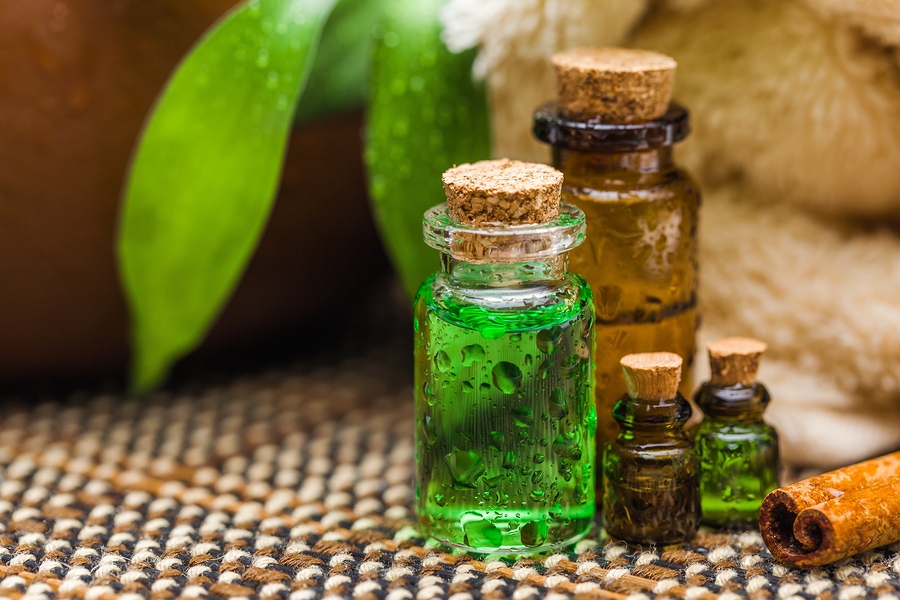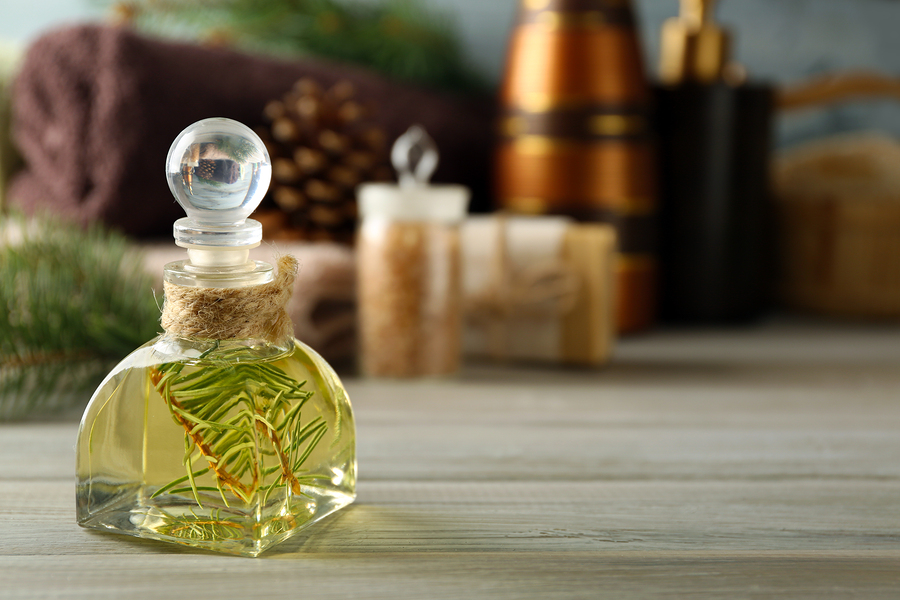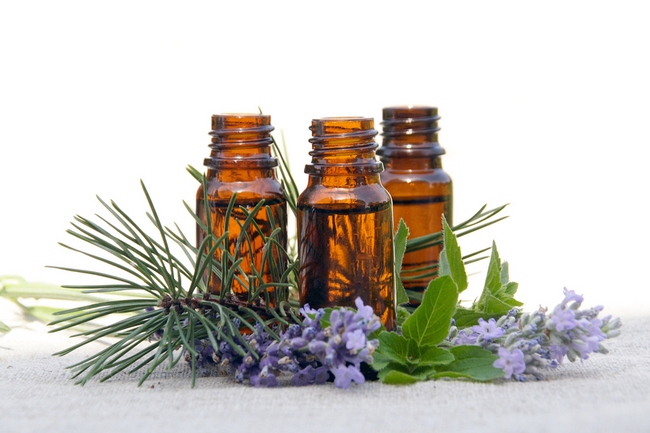- Make It Yourself Lavender Heart-Shaped Bath Bombs!
- 20 Things You Never Knew About “Down There”
- 12 Best Foods For Those Suffering From Arthritis Pain
- 12 Personal Hygiene Mistakes Almost Everyone Makes (Mom Never Told You About #4!)
- 15 Medicinal Plants And Herbs From The Cherokee People
- 12 Mind-Blowing Benefits Of Drinking Coconut Water During Pregnancy
- 12 Outstanding Winter Foods That Won’t Fatten You Up Like A Christmas Turkey
How Essential Oils May Save Your Health (And The World!)

Photo credit: bigstock.com
In the early 20th century, modern medicine took a quantum leap forward with the development of antibiotics. A new type of drug designed to kill bacteria and prevent them from reproducing, antibiotics revolutionized treatment for diseases like syphilisand tuberculosis, as well as skin and wound infections. To doctors and patients at the time, antibiotics really did seem like a miracle, curing diseases and ailments which had plagued mankind since antiquity. Unfortunately, the use of antibiotics carried with it the seeds of its own destruction.
When antibiotics were administered, they killed the majority of the disease-causing bacteria. However, a small percentage of stronger bacteria can survive and mutate into a new form resistant to the antibiotic medicine. That resistance is then passed on to the next generation of bacteria, rendering the medicine less effective than it once was. The World Health Organization now considers antibiotic-resistant bacteria a “major threat to global health.” Overuse of antibiotics has led to new “superbugs”like MRSA (antibiotic-resistant staph infection).
Another problem with antibiotics is they often do not discriminate between the harmful intruding bacteria, and the good bacteria your body needs in order to maintain optimal health. You may cure your infection, but you also destroyed your gut biome. Imagine if the police used an atom bomb to take out some criminals during a hostage standoff; yes, they got rid of the bad guys…but they also killed the hostages, themselves, and destroyed the entire city they were just standing in.
So after decades of misuse, we’re left with an over-prescribed class of drugs which not only are no longer effective in some cases, but also cause significant damage to the body’s microbiome as well. Not good.
Continue to Page 2

Photo credit: bigstock.com
You may be thinking, “None of this applies to me, I’m healthy! I don’t use antibiotics, and I wouldn’t even if I was sick.”Well, that may be a good start, but you’re probably ingesting them in your food and not even knowing it. In (year) over 70% of antibiotic use in the United States wasn’t used in medicine at all. It was in the beef industry. Mega-farms use antibiotics in cows, as well as in pigs and poultry, to reduce diseases in cramped, unhealthy living conditions and to boost growth. Some of those antibiotics can, and do end up, in the food on your plate.
So What is the Solution?
The way out of this mess is with the aid of Essential Oils. There are some who like to dismiss these natural substances as just woo-woo nonsense or marketing hype, and yes, there have been some hacks over the years advertising them as a cure for everything from headaches to credit card debt. But the truth is that essential oils could very well end up saving humanity from an antibiotic apocalypse.
Essential oils are derived from plants and trees, and contain many of the same antibacterial properties as traditional antibiotics, but differ from them in very important ways. For starters, they do not destroy the good bacteria in the body, but only attack the invasive bacteria causing disease. Their use also does not lead to the development of resistant strains of bacteria
Studies have demonstrated that essential oil-based treatments can be just as effective, and sometimes more effective than standard antibiotics. Some scientists believe this is because essential oils can actually penetrate the cell membrane of harmful bacteria, while even the most powerful antibiotics cannot do this.
Continue to Page 3

Photo credit: bigstock.com
Which Essential Oils Should I Use?
Here is a list of essential oils which have shown great promise in treating a variety of both minor and serious health problems. Many oils need to be blended with a “carrier oil”in order to be most effective. Coconut oil (which also has antiviral properties) is a popular choice for this.
- Lavender: Lavender oil is effective for treating skin conditions like psoriasis and acne, and has also proven effective at speeding up the healing of wounds and sunburns.
- Eucalyptus: This oil has demonstrated an ability to speed up the healing of wounds and protects the wound from air exposure.
- Tea Tree Oil: This is a “super oil” which has antibacterial, antiseptic and unlike antibiotics, antiviral properties. This is sometimes found in designer shampoos and skin creams, and is one of the few essential oils that can be applied topically without requiring dilution with a carrier oil. Like eucalyptus oil, it has also shown an ability to increase the speed at which wounds heal.
- Lemon Grass: Lemon grass oil can be used to treat bacterial infections like malaria, urinary tract infections, and food poisoning.
- Oregano: Oregano oil has been used in poultry production for its’ ability to protect against nasty food-borne bacteria like E.coli and salmonella.
- Bergamot: One of the essential ingredients for Earl Grey tea, bergamont-derived oil can be used to treat mouth and skin ailments like cold sores, herpes, shingles, and internal conditions like intestinal worms.
- Thyme: Can be effective against MRSA and normal staph infections. Very welcome news for those in the medical field.
READ ALSO: Essential Oils And Other Natural Substances That Work Like Antibiotics
Now the point here is not to make people swear off antibiotics altogether. Antibiotics however should be considered a last resort when dealing with bacterial infections, since their rampant overuse has contributed to making them less effective. Essential oils can serve as a natural alternative to antibiotics without the collateral damage to your microbiome. Talk to a naturopathic doctor and to your medical doctor about which oil will be most effective for you, and how to use it for your specific condition.
References:






























Anto
Jun 20, 2016 at 1:58 am
This winter I’ve been using a mixture of peppermint and rosemary oils to prevent chilblains which I’ve suffered from every year for the last 46 years. It seems to be working, so far no chilblains after 4 weeks of cold weather. I’m rapt! ‘very grateful to the person who posted the remedy on a health blog I chanced upon.